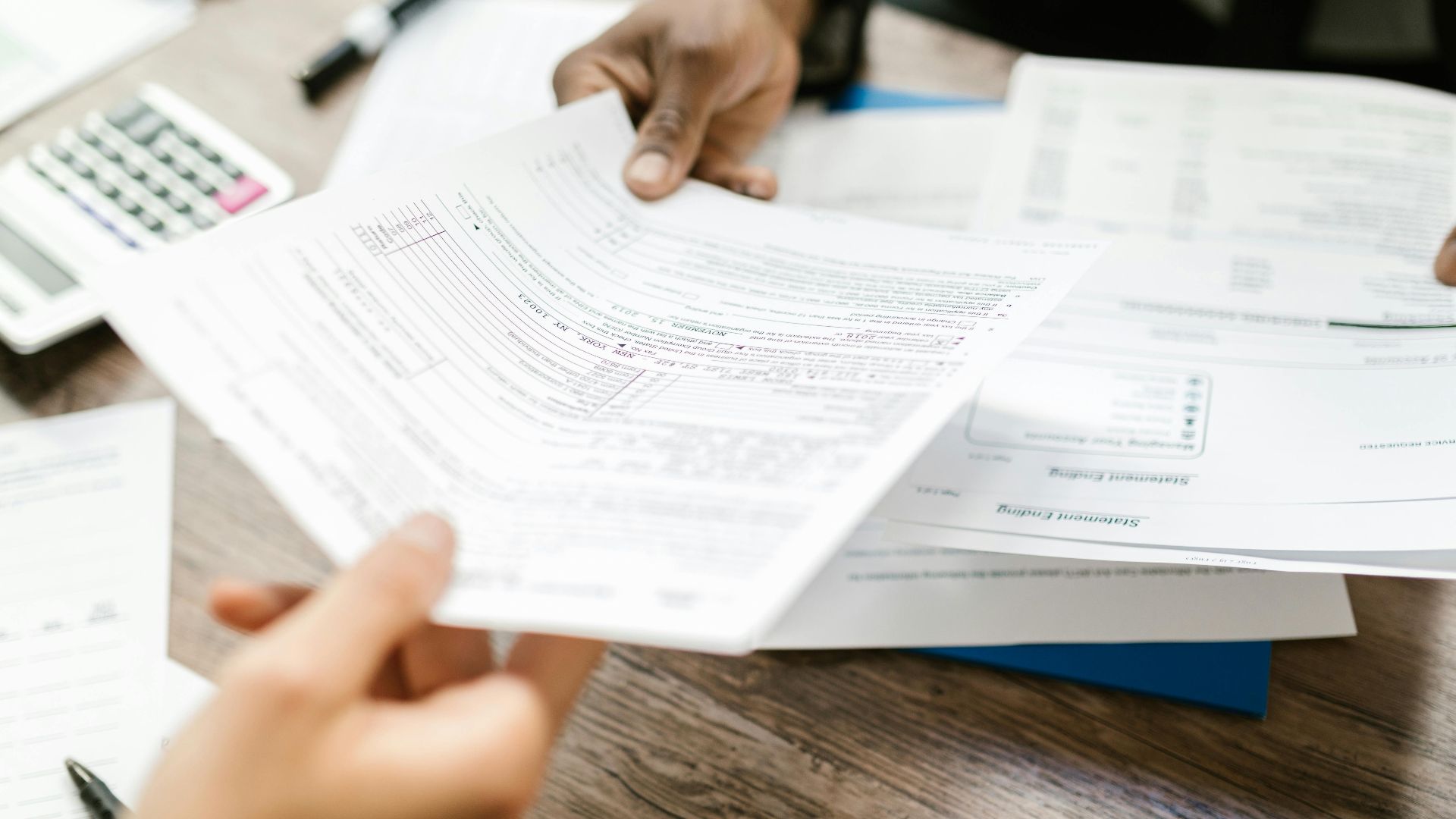Do You Think It's Time To Pull The Plug On Work? Check Your Bank First
Whether you're 10 years or 10 weeks from retirement age, if you're thinking of ending your career, taking your pensions and investments, and enjoying your twilight years comfortably, it might be worth giving your bank account a second look. Are you financially ready to retire?

Do You Have Enough Savings To Last?
On average, Americans live for about 20 years past retirement. Financial experts recommend that you save 25 times the amount you spend annually for retirement. Ideally, you'll have started this process many decades ago as part of your payday routine to set yourself up for retirement.
How Do I Make Sure I'll Have Enough?
While it's hard to know exactly what life will throw at you, you can run projections based on your annual income and spending to ensure that you have close to what you think will be enough. The average retirement household expenditure is about $60,000/year. Multiply that by 20 years, and that's about $1.2 million. That's a good North Star to shoot for if you want to set aside a dollar amount.
Do You Have Excessive Household Debt?
While the term "excessive" is subjective, accruing debt in your life is an almost inescapable process, and at some point, you're going to be in debt in some fashion. But what does "excessive household debt" mean? In general, it means any debts that aren't your mortgage. This can mean student loans, credit card debts, lines of credit, and so on.
How To Get Your Debt Under Control
Living a debt-free lifestyle is one of the most freeing things you could possibly do. But getting that debt under control can be difficult, particularly if you've got a lot of it. Financial experts recommend one of two methods: the debt snowball method or the debt avalanche method.
The Debt Snowball Method
The snowball method has you paying off the smallest debt first and rolling those newfound savings into the next-largest debt and so on, until your debt has been paid off in full. This is one of the fastest ways to pay off debt.
The Debt Avalanche Method
Meanwhile, the debt avalanche method tells you to pay the debts with the highest interest rates first, while making minimum payments on the rest. While the debt avalanche method does have its place in debt repayment strategies, it's not our favorite.
Understand Your Monthly Expenses
One of the most important things you can do to understand if you're ready to say goodbye to your working life is to understand your monthly expenses. This means going over your monthly budget and breaking down what your expenses look like. Once you've done this, you'll have a better idea of whether you'll have enough money coming in once you retire to cover all of your basic expenses.
 Photo By: Kaboompics.com, Pexels
Photo By: Kaboompics.com, Pexels
Don't Have A Budget? Time To Start One!
If you don't yet have a budget, then it's time to start building one. Budgeting isn't something everyone is good at—in fact, most people aren't! But there's no harm in starting to build a budget today and use it moving forward until you take the giant leap into retired life.
 Photo By: Kaboompics.com, Pexels
Photo By: Kaboompics.com, Pexels
Withdraw Your Money Slowly
In keeping with the idea of making your money last as long as possible, withdraw only the amount from your retirement accounts that you think you'll need every month. Plan your withdrawal amounts well in advance with your financial planner—don't be afraid to revisit your financial planning if market conditions change.
Are You Comfortable Living On A Fixed Income?
For most people, retirement will be lived on a fixed income, whether that's your federal and company pensions, combined with various investments (like dividend stocks). If you're comfortable living on a fixed income, then this is a good sign that you're ready to retire. But, if you're not quite there yet...
Build Multiple Income Streams
Unless you have an excellent pension and/or employee-matched 401K that builds you an annual income of roughly $1.5 million, you'll likely need to rely on multiple income streams to fund your retirement, whether those are withdrawals from your 401(k), dividend stocks, remortgaging your home, or even finding a part-time job.
Your Investments Are Low-Risk
When you're young, you can afford to take more risks with your money when you invest it because your money has more time to bounce back from economic downturns and begin making revenue. But, as you near retirement, your risk tolerance will begin to decrease and your investment portfolio should be adjusted to low-risk options only.
The Best Low-Risk Investments For Retirees
If you've just checked your portfolio because you realized it's been sitting at a medium risk level for many years, here are some fantastic low-risk investment options for retirees. If you're not interested in any risk whatsoever, you could sell all of your investments and funnel that income into your 401(k)/Roth IRA/Traditional IRA.
Certificates Of Deposit
One of the most common vehicles for low-risk investments is the certificate of deposit. CDs, as they're otherwise known, are fixed-term deposits that mature at a specific date. They're considered low-risk because the rate of return is guaranteed, as is your principal investment. These come in redeemable and non-redeemable forms and can be used as part of an investment strategy known as "laddering".
What Is A CD Ladder?
Laddering CDs is an investment strategy whereby your principal amount is spread out evenly throughout the course of several years. Depending on your investment timeline, this could be five or 10 years, but the principal is invested in one, two, three, five, and 10 year terms. This guarantees that you'll have access to money a year from now while gaining the advantage of compound interest on the rest, which all mature one year thereafter.
 Photo By: Kaboompics.com, Pexels
Photo By: Kaboompics.com, Pexels
High-Yield Savings Accounts
High-yield savings accounts, or HYSAs, are a great place to park cash that you'll need access to. They're a liquid investment vehicle that offers much higher interest rates than a traditional savings account, but generally lower interest rates than investing in stocks. HYSAs are less volatile than the stock market, but offer higher returns (between 4% and 6%) than a CD.
Moving Money Between Multiple HYSAs
One investment strategy to make the best use of HYSAs is called "bank hopping". Most banks will offer a promotional interest rate for new customers who move their funds into their bank from another institution. This is particularly true for high-yield savings account and those who move their paycheck deposits over. You could choose to move your funds between banks and "chase" higher interest rates for short-term promotional periods as a way to maximize the interest you earn annually.
Treasury Bills
Otherwise known as "T-bills", treasury bills are bonds that are guaranteed by the US government and are possibly the safest investment you can make in retirement. The return on treasury bills is typically lower than corporate bonds, but the risk is almost zero. They retire at various intervals, so you can tailor them to your personal retirement earnings strategy.
 Photo By: Kaboompics.com, Pexels
Photo By: Kaboompics.com, Pexels
Dividend Stocks
Dividend stocks are stocks that pay a small dividend to you on a monthly, quarterly, semi-annual, or annual basis. There are many types of dividend stocks and they can make up an important part of your investment portfolio by providing guaranteed income.
Stable Value Funds
Your employer-sponsored retirement plan may have these as an option within it. Stable value funds are designed to preserve your capital by investing in low-risk fixed-income securities and insurance contracts. They offer a higher return than a traditional savings account, without the risk of the stock market.
Fixed Annuities
Annuities are insurance contracts that provide fixed income for a specific period (or for life), depending on what you've purchased. These are complicated pieces of investment as they come with annuity fees and other tax implications. Be sure to talk these over thoroughly with your financial advisor. Let's move on to another item in the "Ready to Retire" checklist.
You Have An Emergency Fund
This is something that you hopefully already have in place, but if not, then now is the time to start building an emergency fund. If you already have one, great! Does it have enough to see you through an emergency that falls outside of what your regular retirement income will cover? If not, then now might be the time to revise your emergency fund.
Build An Emergency Fund
If you don't have an emergency fund, now is the time to start building one! Start off by saving $1,000. You should be able to do this relatively quickly. Place this in a safe savings account—either a high-yield or traditional account—that is liquid. Next, try to save up between three and six months' worth of basic expenses. Once you have that fully-funded emergency, you'll feel much better about tackling whatever life throws at you in retirement!
 Photo By: Kaboompics.com, Pexels
Photo By: Kaboompics.com, Pexels
You've Got A Plan For Inflation
Any decent financial advisor will help you plan your retirement by adjusting your income streams for inflation, based on projections. While it's impossible to predict the future, if your retirement savings are adjusted for inflation, you'll likely have a much easier time during retirement. But what if you've never adjusted your income for inflation before?
Discuss Inflation-Proof Options With Your Financial Advisor
There are a few investment options that are viewed as being "inflation-proof". Among them are: gold, treasury bills, real estate income, and investing in real estate investment trust (REITs). Discuss these options when discussing your retirement investment portfolio with your financial advisor.
You Have A Plan For Long-Term Care
At some stage in your later life, you may need to enter a long-term care facility. If you already have health problems (and haven't retired yet), then this is a crucial part of your financial retirement planning. Have frank and honest conversations with your spouse and family about your health and your wishes regarding long-term care.
Think About Long-Term Care Insurance
Long-term care insurance or opening up a health savings account are two great options to begin to plan for long-term care that you may need as you enter the latter years of your retirement. The good news is that this is at least 15-20 years away, so you have lots of time to make regular contributions to these accounts.
You've Considered Downsizing To A Smaller Home
As you enter retirement age, it's highly likely that your kids have long since flown the nest and that your large property is a lot for one or two people to live in. It's also attained a huge amount of value during this time. If you haven't thought about downsizing, then it may be a great option to take that equity in your home and live the life you've dreamed of.
Selling Your Home To Finance A Simpler Life
Selling your large home that you raised a family in will be emotionally challenging, but it's a great way to fund a simpler lifestyle and put more money in your pockets during retirement. Using the equity in your home to fund travel, or living in a much smaller apartment or home for the next 15-20 years is not a bad way to spend your twilight years.
You Understand How Your Retirement Taxes Will Work
Unfortunately, taxes don't disappear in retirement! You'll need to understand how your tax situation will change once you retire and explore your options to reduce your taxable income. If you're confused about your tax situation, read on.
How To Strategically Manage Your Taxes In Retirement
The theory is that your taxable income will be reduced in retirement because you'll be making less money. One particular strategy for this are called "Roth conversions," when funds from a traditional IRA or 401(k) are moved into a Roth IRA (where withdrawals and growth are tax-free). You can also claim certain medical expenses on your taxes if they exceed 7.5% of your gross income.
You've Completed Your Estate Planning
While retirement doesn't have to mean you're closer to not being around anymore, it's important that you realize that you're getting older and that if you want to leave something to your heirs and successors, then a proper estate plan is in place.
 Photo By: Kaboompics.com, Pexels
Photo By: Kaboompics.com, Pexels
What's In An Estate Plan?
Estate planning generally involves writing a will that lays out whom your property and assets will be allocated to upon your death. Please ensure you speak with an estate lawyer and get everything in writing. This will really help to smooth out the process of disbursing the funds after your passing.
Testing The Waters Of Retirement
Before you officially retire, it might be a good idea to test the waters of retirement by taking less shifts at work, or scaling back your duties to give yourself more time for you. Testing the waters of retirement can be a great way to see if it's for you at this stage in your life—and more importantly, if you can manage it financially.
Try Living On Your Retirement Budget For Awhile
One way to test if you're financially ready to retire is to live on your retirement budget for a couple of months. How's life? Are you living at the same level as you were before you retired? Can you manage your bills and have some money left over to vacation with, or the occasional meal out? If you're successful and happy in this trial period, you may be ready to retire.
Your Spouse Or Partner Is Onboard
If you live with a spouse or partner, it's important that they're apprised of your feelings about retirement and your concerns about money (if you have any) and are onboard with your decision to retire. If you have joint financial accounts, it's important that this income is taken into account when you're planning to retire.
Have A Conversation About Your Goals & Desire To Retire
If you're considering retirement, but haven't yet brought it up with your significant other—do so now! That's not a conversation you can't have and it's not something to keep to yourself until the last minute. Having an open and honest dialogue about your retirement is critical to ensure that you're both on the same page.
You're Excited About Your Retirement
Retirement should be one of the most exciting times of your life! You finally don't have to show up for work the next day, after 40+ years in the workforce. Retirement gives you the chance to pursue dreams you've always had and live your best life!
What If You're Not Excited About Retirement Because You're Worried About Money?
Of course, it's totally understandable not to be excited about retirement if you're worried about money. But, by following our checklist and ensuring that all your boxes are ticked, you'll (hopefully) be as prepared as you can be to face a life after work—one filled with joy, love, and success, rather than penny-pinching financial woes.
You May Also Like:
Crypto Comeback: What You Need To Know Before Investing In 2025
You've Just Inherited Over A Million Dollars, Now What?








































